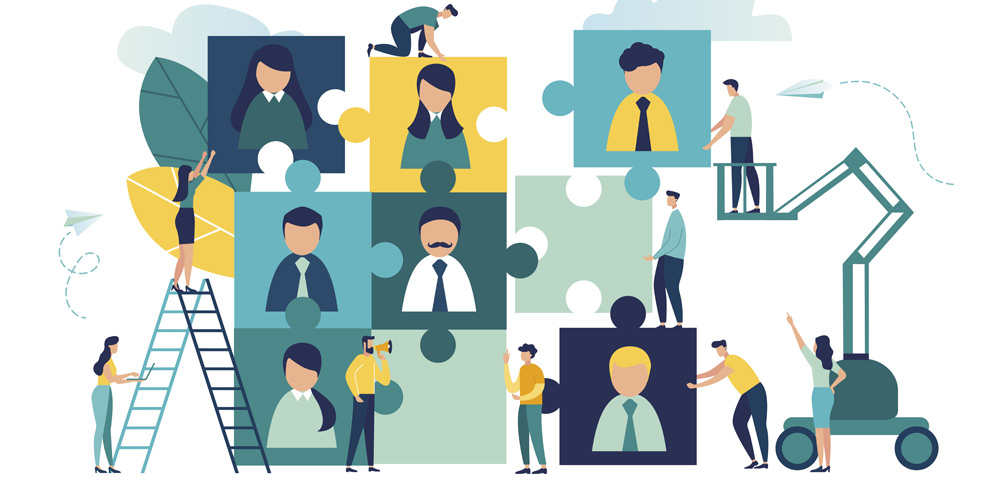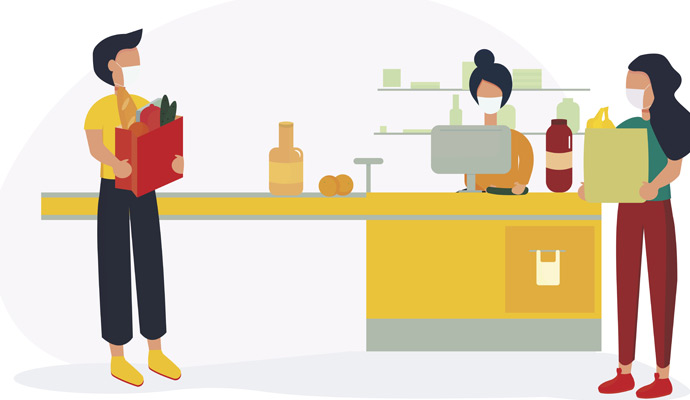Redefining B2B customer experience: COVID-19 catalyzes big changes
The pandemic is forcing companies to focus on experiences their clients expect, while mobilizing them to accelerate product and service innovation.
As a business leader, by now you’ve absorbed the initial shock of COVID-19 and realized that it’s time to start emerging from crisis response mode. But you’re nowhere near being out of the woods. You’re still dealing with emergencies while also learning as you go about your clients’ evolving needs and how to anticipate them and exceed expectations. Navigating this uncertain middle ground — the constantly shifting conditions and the unknown outcomes and time frames — requires a balance of sensitivity and agility.
This is as true for B2B companies as it is for B2Cs. We’re all human and we’re all in this crisis together, so as a B2B leader, you need to connect with your stakeholders and optimize their experiences. If you take this time now to reflect on what’s been working for your clients and what hasn’t, you can redesign and elevate each stakeholder touchpoint, accelerate the effective strategies, and catalyze innovation to fortify experiences. By doing so, you’ll cement positive, long-term relationships with your customers, internal and external, that will foster sustained mutual benefits.
Shifting from a selling culture to a serving culture
Many larger B2B companies have, during the past two decades, shifted their operating model to focus on long-term customer success rather than near-term sales. Under this model, sales head count is reduced, and success is measured not by the number of units sold but by the rate of adoption of products sold and the depth of customer engagement. This sales-to-service shift gives those companies that have a customer success team an experience advantage — which carries dramatic benefits at a time like this, when human interactions based on empathy are so important. The crisis is teaching us what we should have already known: that we must understand and empathize first, and sell second. Small and medium B2B enterprises can benefit from pivoting to a customer-success model as their larger B2B counterparts have done.
Whether your company is pure B2B or B2B2C, a customer-success culture naturally puts your business clients or end-users at the center of everything you do, which is imperative now. The pandemic is throwing into sharp relief the things that matter most to those you do business with. Pay attention, and redesign your organization around what you’ve learned about your customers’ needs — as opposed to developing products and services, and then molding your operations around selling them. For instance, B2B and B2B2C companies such as Schneider Electric, FedEx, and Philips have redesigned their organizations around an operational backbone of customer data, which informs the companies’ digital offerings and enables close alignment with customer needs. Sharing the data across the organization affords these companies the distinct advantage of agility — so they can respond to changing conditions quickly.
Accelerating innovation
This crisis is bringing to the surface all kinds of innovative ways to use technology and other means to serve customers. In many cases, new solutions and products might have already been in your pipeline or on your mind, but current needs are giving you reason to accelerate development and launch. For example, corporate clients need products to facilitate remote working now, not in a year or two.
B2B companies are also putting more resources into coming up with innovative ways to break down boundaries and develop mutually beneficial partner alliances — sharing customer data, co-investing, or building entirely new ecosystems — which they probably wouldn’t have done otherwise. These new ecosystems are creating win–wins and entirely new business paradigms.
For example, in cooperation with two leading medical institutions in the Netherlands and the Dutch government, Philips has created an online portal that allows Dutch hospitals to share COVID-19 patient information, seamlessly and securely — making it easier to transfer infected patients to another facility to avoid overload in critical care units.
If you take this time now to reflect on what’s been working for your clients and what hasn’t, you can redesign and elevate each stakeholder touchpoint.
These changes are happening in the B2B2C space, too. Hilton Hotels, which has had to furlough tens of thousands of employees as the hospitality industry was decimated by the pandemic, has partnered with Amazon, CVS, Albertsons, and others to share a human resources function and help place more than 200,000 U.S. hotel workers (already seasoned in customer service) in temporary positions. The furloughed employees will continue to receive health benefits from Hilton, which hopes to hire them back when demand and service resume. In the meantime, Hilton is looking to expand the employee-sharing program globally and add new partners. Other hotel chains are exploring similar arrangements.
When it’s over, what will your customers remember you for?
The poet Maya Angelou is famously quoted as saying, “I’ve learned that people will forget what you said, people will forget what you did, but people will never forget how you made them feel.” The COVID-19 pandemic has thrown the spotlight on the human side of B2B customer experience. People remember the interactions they’ve had with a company based on how they felt. Memorable experiences, positive or negative, are born of intensity, and they’re persistent. If you meet your customers’ needs in this moment of heightened vulnerability and go the extra mile — extend payment terms for a few critical weeks, forgive a loan (or a late delivery), offer to support their staff in some way — the emotionally evocative nature of the action can generate a halo of positive brand affinity that will endure long after COVID-19 passes.







